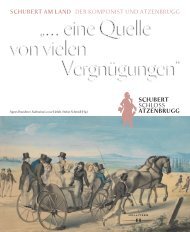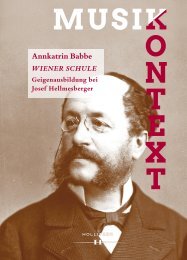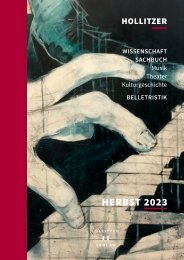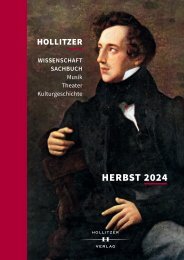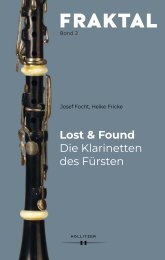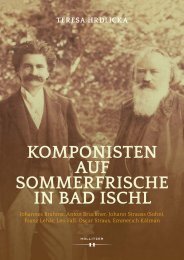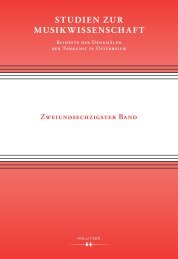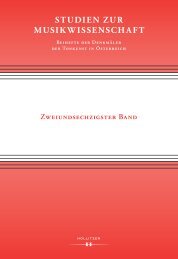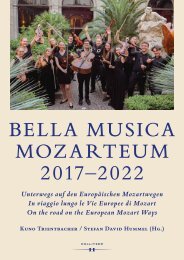You also want an ePaper? Increase the reach of your titles
YUMPU automatically turns print PDFs into web optimized ePapers that Google loves.
Musical Documentation of a “Forgotten Century” and Beyond<br />
Since his youth in Baltimore where his uncle took Robert to jazz clubs,<br />
in his adolescence when he played saxophone in a band, and through his university<br />
years in 1960s New York, Robert has always been a jazz aficionado.<br />
Almost since RIPM’s inception, the large and vital jazz press had remained on<br />
RIPM’s desiderata list. Finally, in 2016 RIPM signed an agreement with the<br />
Institute for Jazz Studies at Rutgers University in Newark, New Jersey, the<br />
famed jazz archive. Jazz periodicals represented a departure for RIPM: Not<br />
only was the musical genre entirely different from RIPM’s other journals, but<br />
these journals also presented new challenges related to copyright and rights<br />
holders. Nevertheless, in 2019 RIPM Jazz Periodicals debuted, allowing full<br />
text access for the first time to 105 journals which documented and discussed<br />
jazz’s development from 1914 to 2000. To say the project has drawn great<br />
interest and enthusiasm would be an understatement; as one reviewer noted,<br />
RIPM Jazz Periodicals stands to “revolutionize this field by giving jazz researchers<br />
a huge vocabulary of common source material.” 14<br />
* * *<br />
This narrative is necessarily reductive, compressing some forty years of labor<br />
into a few mere paragraphs. It lends the impression that success was inevitable.<br />
However, the labor required to establish scholarly networks, apply for and<br />
preserve funding, maintain production quality and quantity, obtain projectsustaining<br />
grants and subscriptions, hire capable staff … such are the pitfalls<br />
which bedevil many a well-intentioned academic project. Yet, thanks to Robert,<br />
RIPM succeeded.<br />
H. Robert <strong>Cohen</strong> is the last of the founding directors of the R-projects.<br />
As he often recalls, he came of scholarly age during the postwar generation of<br />
musicology, studying with Gustave Reese and taking the A train in New York<br />
with Barry S. Brook, founder of two R-projects himself. 15 This was an age<br />
where source studies were vital and central to musicology. Afterall, how can<br />
we say anything definitively as historians if we do not have control over the<br />
sources? But with new technologies, and with determination, we could gain<br />
control and thereby deepen our knowledge of musical history and to correct<br />
the received historical record. A “forgotten century” could be rediscovered.<br />
14 Carlos Peña, “RIPM Jazz Periodicals.” Notes: Quarterly Journal of the Music Library Association<br />
(March 2020): 486–90.<br />
15 <strong>Cohen</strong> recalled this during a memorial session to Brook at the 2015 IAML-IMS Congress<br />
in New York. As Robert has noted, he only barely missed Curt Sachs, a great figure of<br />
prewar musicology in Germany, who began teaching at NYU in 1937 after emigrating from<br />
Germany.<br />
19





